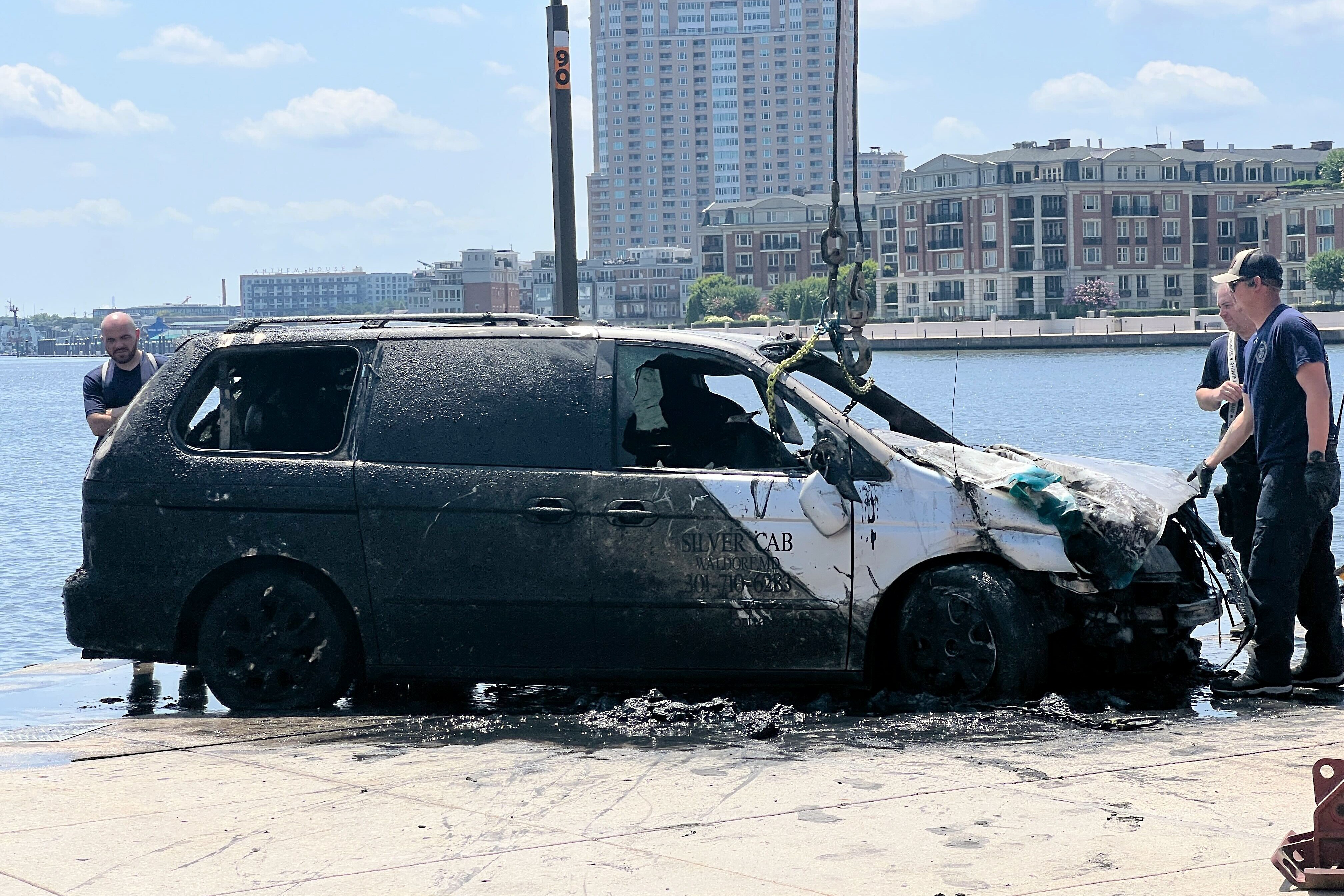CURRENT EDITION: baltimore (none)🔄 Loading BlueConic...EDITION HISTORY: No changes tracked
🔵 BlueConic: ___🔗 Query: ___✏️ Composer: ___
Social justice
DOJ’s request to pause Kilmar Abrego Garcia’s immigration case denied by Maryland judge
On Monday, a federal judge in Maryland denied the Justice Department’s request to pause Kilmar Abrego Garcia’s immigration case due to the government shutdown.
Advocates in Baltimore protest deportation of cruise ship employees to Philippines
Grassroots organizations gathered in Baltimore for a rally protesting the detainment and deportation of four migrant seaworkers this month.
Another assassination, another step toward an American dissolution
Assassinations, by their nature, are destabilizing. In the spinning top of American political life at this moment, Charlie Kirk's death may prove to be the thing that irretrievably knocks us over.
Trump plans a hefty tax on imported drugs, risking higher prices and shortages
Trump has promised to impose hefty import taxes on pharmaceuticals, a category of products he’s largely spared in his trade war.
Maryland pastor ‘happy to be home’ after ICE arrest
A Maryland pastor, Daniel Fuentes Espinal, makes a video statement after being released Thursday from a New Orleans detention facility.
Howard County wants to give $1,000 monthly payments to needy families
Howard County is launching a guaranteed basic income pilot program to study how transformative $1,000 monthly cash payments would be for 20 needy families.
Detention cells in Baltimore designed for short stays instead confine immigrants for days
Under the Trump administration, ICE has detained immigrants in Baltimore holding rooms for an average of 51 hours, four times longer than the maximum time limit under its longstanding policy, according to a Baltimore Banner analysis of federal data.
Feud between Anne Arundel judges heads toward finale. Unfortunately, they dragged me into it.
The two-year feud between two Anne Arundel County Orphans Court judges heads toward a denouement this month, when a disciplinary commission considers complaints against one of them. Unfortunately, they dragged me into this.
There’s a body in the Inner Harbor, and other reminders that life is unpleasant
The discovery of a body at the end of Pier 4 is not a cause for mirth, despite wry comments about water quality and swimming. It is a reminder that the Chesapeake Bay is a place where life sometimes ends.
Baltimore families ripped apart by ICE detentions, deportations
Baltimore immigrant families now are coping with the sudden separation from loved ones and navigating both the consequences at home and the uncertainty of what happens next.
It’s not just childless adults: Kids could get hurt by Medicaid, SNAP cuts
Spending cuts may be aimed at adults on paper, but kids could still end up without sufficient food and health care under the One Big Beautiful Bill.
Why doesn’t Baltimore County have any public pools? Blame segregation.
There are no public pools in Baltimore County. Nearly 70 years after the Supreme Court's Brown decision overturning the "separate but equal" principle, some attribute this to the legacy of segregation.
Free speech is under attack in the Trump era. It’s no time to keep quiet.
In this moment of everyone shouting at once all the time, would we be better off if we all just shut up for a day? Then I remember my right to ignore it all. What if we can’t refuse? That's the risk to free speech today.
Neighbors seek answers after Baltimore police shoot, kill 70-year-old woman
This is the second fatal Baltimore Police officer-involved shooting in West Baltimore in a little more than a week.
Dion Banks symbolizes Black pride on the Eastern Shore. His first book takes a page from that life.
Dion Banks has written a children's book about a Black superhero who fights slavery titled “Kofi the Wind Whisperer: A Hero’s Fight to Freedom.” The story takes inspiration from the landscape of Dorchester County.
Trump’s military response to LA supercharges No Kings Day protests across Maryland
What the hell. It’s a pretty apt summary of this moment. No Kings Day protests planned to counter President Donald Trump's military birthday parade Saturday are growing in response to events in Los Angeles.
Free legal service for LGBTQIA+ people in Maryland faces sharp funding cut
FreeState Justice, a Baltimore-based nonprofit, received word at the end of May that $300,000 in funding from the federal government will disappear in July.
Hopkins’ dimming DEI efforts worry students who feel left behind
Johns Hopkins University is at a complicated crossroads as President Donald Trump’s administration threatens to pull federal funding from institutions with programs that support marginalized groups.
ICE targeted a Maryland mother over a decades-old crime. Her town is fighting back.
A 43-year-old is fighting deportation to Vietnam, a place she last lived when she was 10.
Behind the scenes, ICE is meeting with Howard County’s top elected leaders
Federal immigration authorities are meeting behind closed doors with Howard County’s top elected leaders to discuss a dispute over detaining people in the county jail who are suspected of entering the country illegally.















